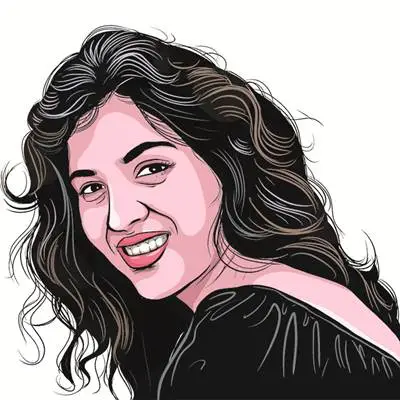Opinion On the Loose: Size matters
Surprise weight checks won’t solve the health problems within the police force.
 If no overweight personnel are found in the survey, the officers will have to specify that too in a communication to the SP’s office. (Illustration: Suvajit Dey)
If no overweight personnel are found in the survey, the officers will have to specify that too in a communication to the SP’s office. (Illustration: Suvajit Dey)  While the world is largely in agreement that thin is better than fat, the waist of a policeman shouldn’t be the big issue while judging his value. (Illustration: Suvajit Dey)
While the world is largely in agreement that thin is better than fat, the waist of a policeman shouldn’t be the big issue while judging his value. (Illustration: Suvajit Dey)
Police officers in a district in Rajasthan have the most unusual task at hand: the office of the Superintendent of Police, Bikaner, has issued an order to identify all personnel whose weight and waist size is “more than average”.
Details of their measurements have to be listed in a prescribed format and submitted by November 1. “This is a routine process, part of a survey to check fitness, to see who needs improvement in which section and to use it in an advisory,” said Bikaner SP Pradeep Mohan Sharma. (The Indian Express, October 24, 2019).
Perhaps this is a devious plan to catch chubby officers unaware — or why else would the SP issue this haphazard weight test at the worst of times — when all of India is feasting in this merry festive season? It’s the one month of the year starting with Durga Puja when nobody, including the police, is exempt from piling on the pounds.
Needless to say, it couldn’t have been a very happy Diwali for these upholders of the law, since they’ve (presumably) been forced to exhibit an iron will and refrain from all the mithai floating around. It’s no secret that a huge section of the Indian police force leans towards corpulence — several surveys have revealed that 30 per cent officers suffer from high cholesterol, diabetes or blood pressure. To be fair, this is less to do with gluttony and more to do with the fact that the police in India work long hours under extremely trying circumstances. You just have to get out on any arterial road of Delhi to see what a tough job they have, whether it’s dealing with traffic or accidents, forget the high stress that goes into tackling murders, rapes and molestations.
While the world is largely in agreement that thin is better than fat, the waist of a policeman shouldn’t be the big issue while judging his value. There would be citizens all over the country who’d prioritise a honest and motivated police officer over a compact shaped one any day. Besides, being a few kilos overweight doesn’t mean one loses the capacity to do one’s work. Unless we’re caught up in old fashioned imaginings of the game chor-sipahi, police work is rarely about physically chasing robbers anymore. Investigations rely on paper trails, mobile bills and of course, the occasional (tense) intervention into a crime zone. Unless a cop is morbidly obese, it shouldn’t hamper his ability to take the right decisions. It is worth noting, a fitness regime and meal planning requires time which the police don’t have, considering reports suggest there is a shortfall of 6 lakh employees in ratio to the population. If one constable is doing the work of three, it’s no wonder that hypertension has taken over the force.
The value of fitness, undoubtedly, cannot be overestimated in any profession, especially in law enforcement which is a more physically exhausting job. But the health concerns of the police force can’t be addressed by random weight loss diktats. They need reforms that improve working conditions so there’ll be time to prioritise exercise.
In June, the Pune Police found fitness role models from within the force to encourage others to exercise regularly. Some years back, in Patna’s police headquarters, yoga teachers from the Munger school were engaged to teach asanas to reduce stress.
However, we no longer live in a world where it’s considered acceptable to make a condition of employment, a particular weight. There was a time flight attendants were expected to be a certain size, and while it’s most likely hirings favour the slim in the airline industry still, the culture has changed enough that it’s considered in poor taste, to openly acknowledge a preference, based on weight. The image of the pot-bellied, morally bankrupt khaki man is a much derided stereotype in India. To add to this woeful description, girth as a moral failing rather than the result of complicated factors, is to not acknowledge the sluggish government systems, that created the problem.
hutkayfilms@gmail.com


